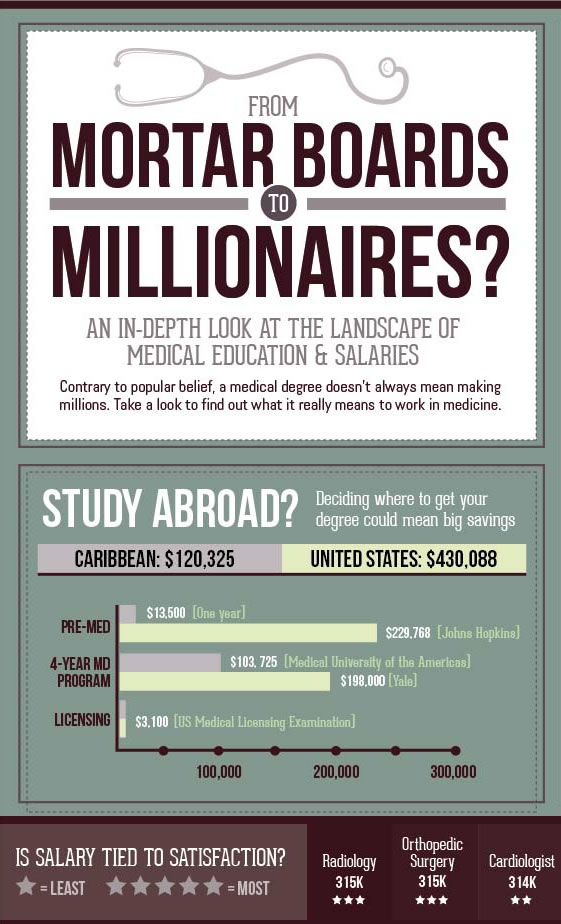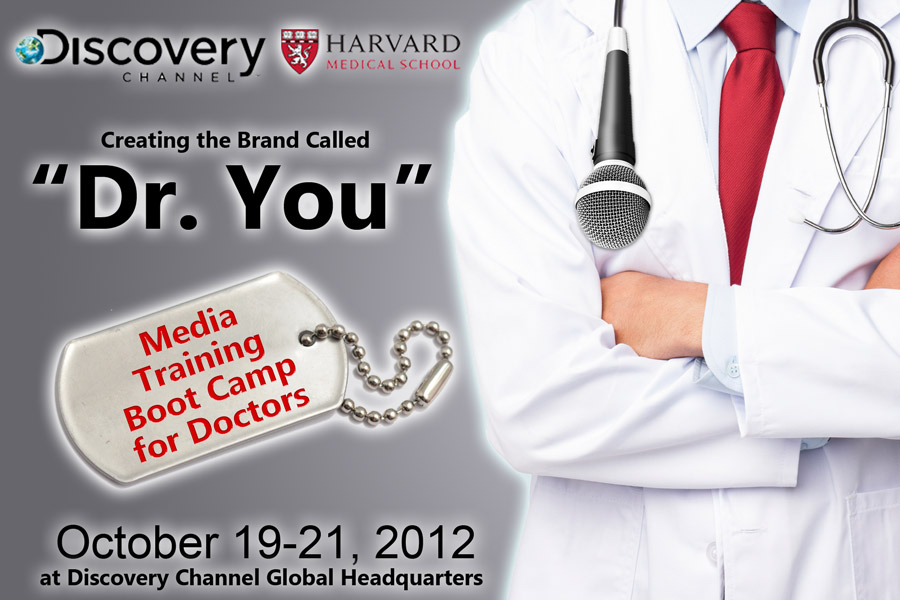Physician - Why You Should Blog
 Some physicians are embracing blogs. Why?
Some physicians are embracing blogs. Why?
More people read blogs that you may realize. Smart, informed and professional people read blogs. In fact, I probably don't need to point this out, but you are probably a smart, informed professional person who is reading one now!
If this is true, why do blogs have such a bad reputation among many high level professionals? It's likely due in part to the fact that nearly anyone can blog (and lots of people do), so it may seem like it's not worth pursuing something that essentially anyone can easily do.
But, all blogs are not the same. And, one blog can change your life--or at least really enhance it. Blogging is really about having something to say and then reaching your intended audience.
For example, the first time that I talked psychiatrist Ron Schouten into blogging was for Harvard Business Review--a very prestigious blog site. Dr. Schouten's blog was titled Psychopaths on Wall Street and was read by many thousands of professionals including a Time Magazine reporter who blogged about it on the Time website within 24 hours.
Dr. Schouten began to see the power of blogs and how they can reach a wide and impressive audience.
And, it's interesting to see what happens when a doctor starts to blog. Doctors who blog often virtually meet other doctors or professionals who blog, and they form some really great relationships. For example, David Yamada is a tenured professor of law at Suffolk University and a scholar at the Workplace Bullying Institute. One day, Professor Yamada was browsing through the bookstore and came across Dr. Schouten's book, Almost a Psychopath. Dr. Yamada blogged about this book in a blog post titled Do Almost Psychopaths Help to Explain the Prevalence of Workplace Bullying and Abuse?
Professor Yamada virtually met Dr. Schouten thereafter, and this led to Schouten being invited as the keynote speaker at a conference Yamada was organizing. Their paths have crossed numerous times--as they have similar interests in educating people about the subtle and not so subtle "bad behavior" that so often occurs in the workplace--very often due to men (and some women) who have subclinical psychopathy (read the book to find out more!).
If you haven't tried out blogging, consider submitting one to FreelanceMD.com. Before you do, read some of the blogs on this site and think about what people might want to hear more about. One blog really can open up lots of new doors, and it's fun to try!
An Uncommon Cure for Physician Burnout
A recent Mayo clinic study concluded that almost 50% of physicians are experiencing at least one symptom of burnout. I actually think it's much higher.
Inevitably we're told to cope with burnout using a variety of methods. I take that to mean "Shut up and put up." Well, I've got a different solution for physician burnout. Watch my video where I explain my alternative solution:
Physician Leadership On Nonprofit Boards
 Practical insights for physician board members and chief executives.
Practical insights for physician board members and chief executives.
Physician leaders are often asked to serve on boards of nonprofit organizations. Physicians in transition may also want to explore this—not only as an opportunity to apply their leadership skills outside of clinical practice—but also as way to give back to their communities.
I have found that a lot of ink has been devoted to the theories that drive nonprofit board leadership—but perhaps, too little about the nuts and bolts of ensuring effective boards. While serving on a nonprofit board can be richly rewarding, it can also present a leadership challenge. Depending on your past experience, you may want to take a closer look at the practical aspects of nonprofit governance, including formulating board structure and process, developing a strong partnership between board and staff, and structuring effective board and
New Media Boot Camp For Doctors
Harvard Medical School and the Discovery Channel have teamed up to offer first-of-its-kind media training conference for physicians.
About a year ago, John Whyte, MD, vice president for continuing medical education at Discovery Channel, introduced himself to me and said, "Discovery Channel and Harvard Health Publications should host a joint conference for doctors who want to take their careers to the next level."
What seemed like a bit of a wild idea at first has become a reality, and the conference titled Creating the Brand Called Dr. You: Media Training Boot Camp for Doctors will be held at the Discovery Channel global headquarters in Silver Spring, Maryland. When I visited John at Discovery Channel, it was truly an amazing place to be, and I think it's the perfect location for this course!
Doctors (and other professionals) who take this all-inclusive course will come away with:
- Live TV training
- Teleprompter experience
- Radio coaching
- Professional headshot
- Video/reel
- Strategies to improve an online platform
- And much more!
This is a first time ever offering, and we're not sure if we'll do it again. There are only 100 slots for attendees, so we expect it to fill up fast. Therefore, if you are interested in attending, check out the website, and I hope to see you there!
 Email This Article tagged:
Email This Article tagged:  Discovery Channel,
Discovery Channel,  Harvard Health Publications,
Harvard Health Publications,  Media Training,
Media Training,  Medical Education,
Medical Education,  Physician Training,
Physician Training,  social media |
social media |  Aug 12, 8:00 AM
Aug 12, 8:00 AM The 90/30 Conundrum: How To Change Medicine (If It's Even Possible)
 Guest post by Aaron Schenone
Guest post by Aaron Schenone
Is it possible to change the healthcare industry?
I recently read an article entitled “Rebels at Work: Motivated to Make a Difference” a conversation with Lois Kelly. In her research she refers to the 90/30 conundrum where 90% of respondents agreed activating creative thinking can improve culture and drive innovation, yet only a third of those respondents were satisfied with innovative individuals’, the so called rebels, ability to provide that outcome.
Her research goes further defining these innovative individuals as creative, curious risk takers that aren’t driven by monetary gain, but by the ability to make a difference. They aren’t afraid to call out problems or be the first to do things differently. She also found people are uncomfortable with these individuals who challenge the status quo, circumvent the rules, question organizational leaders, and initiate projects without permission. Too often leaders react by throwing these habitual truants into the trapped box with the label “Rebel” on it.
It’s no surprise that innovative individuals gravitate to the world of entrepreneurship, starting their own organizations where they can create a culture that not only understands their purpose, but more importantly can provide an outlet for their ideas to make a difference in the world. We intuitively know some of these types of individuals such as Steve Jobs, and Richard Branson, but these individuals are in every industry and industry leaders are starting to recognize their value. People like Carmen Medina, former CIA Deputy Director of Intelligence, who supported the creation of a novel and dynamic approach to searchable actionable intelligence through a program affectionately called Intellipedia.
In medicine many of our innovative medical students and residents have had similar frustrations often being misunderstood and thrown into the trapped box with the label “Cowboy” on it. We feel misunderstood, locked out and all too often make an early exit from the very organizations and patients who need our ideas the most. I believe the 90/30 conundrum is a reflection on the challenges innovative people and organizational leaders have had in attempting to build trusting, productive relationships. It’s something that as innovative minded medical students and residents many of us have been battling since we sat in our first years of didactic lectures. We continue to ask whether actionable change is possible in such a large numbers driven industry.
Today, I believe it is possible to make actionable change in the healthcare industry. But to get there we must first gain the trust of our leaders. We must prove we’re not just cowboys without a cause; we’re passionate activists ready to drink H. Pylori to prove there’s a better way.
About: Aaron Schenone Third Year Medical Student in St Louis, studying clinical research in oncology
Is Telemedicine A Perfect Solution?
 Telemedicine has been the subject of many recent discussions between me and this guest author, Murdoc Khaleghi, MD, MBA, FACEP, FAAEM.
Telemedicine has been the subject of many recent discussions between me and this guest author, Murdoc Khaleghi, MD, MBA, FACEP, FAAEM.
Keeping up with the healthcare trends is essential, whether you are practicing clinically or in a non-clinical job because those trends determine tomorrow’s opportunities. The Supreme Court decision regarding the Affordable Care Act set certain wheels in motion regarding future mandates and legislation. However, we would argue that the US health system is in the midst of innovation and change regardless of the judicial system. Some of the problem like rising costs, older, sicker people and consumerism are independent of any federal legislation.
Technology solutions aim to solve some of those problems and have been written about on this site. Jeff Barson discussed how medical outsourcing is becoming standard practice for certain specialties (http://freelancemd.com/blog/2010/12/6/physician-outsourcing-technology-will-flatten-the-medical-wo.html). Arlen Meyers wrote about different interface technologies that are intended for non-medical use but have potential medical or healthcare applications or value (http://freelancemd.com/blog/2010/12/12/working-on-the-edge.html)
Telemedicine or telehealth appears to be one of the fastest growing areas of health care. Physicians like the flexibility of when and how much they work, without the tie to the office. Not having to work in an office also reduces overhead significantly, while allowing physicians to work from anywhere. It seems telemedicine may be another tool for the doctors who are looking for help improving and expanding their practices or exploring a non-traditional medical area. One doctor had this to say,
“I can consult from the comfort of my deck, or easily schedule exercise and breaks into my day. I am even planning a few consults per day at a vacation home. There are no refills to sign for, no urgent care calls in the middle of the night.”
Obviously, telemedicine does not take care of all medical issues, such as those that require procedures or immediate interventions, but for preventative care and low-acuity complaints, telemedicine can be an effective form of healthcare delivery. For example, telemedicine can take advantage of many internet-based features. Health information, diagnostic tests, consultations, and recommendations can all be performed or shared with providers and patients via the cloud. A recent article published online on June 22 in the British Medical Journal reported that for patients with long term conditions, telehealth can reduce 12-month mortality by nearly half. Other benefits included reduced hospital stay and mean number of emergency admissions.
WellnessFX and ISelectMD are two telemedicine companies that seem to be doing something unique and innovative. WellnessFX has a focus on preventive medicine but hires doctors of all specialties. Companies like Teledoc, American Well and Ring-A-Doc also continue to bring new and useful products and services to market. These companies all hire doctors as consultants to do work on a part time or piece meal basis. Some doctors want to launch concierge medicine services and others want to bring in more clients and offer service outside of traditional working hours.
As physicians, we are always interested in patient outcomes and patient satisfaction. Many patients like telehealth because it allows for more flexibility in scheduling appointments and they can avoid time in waiting rooms. Going back to recent health reform trends, with more regulation and legislation, patient satisfaction scores are becoming more important as a reflection of overall quality of care. Interestingly, telehealth seems to be meeting patients’ needs. From these actual notes, it seems apparent to us that telehealth not only meets patient needs but also can contribute to coordination of care.
"WellnessFX saved my life. Without it, I would have struggled through more specialists, different drug treatments, and continued fatigue and ill health. Now, I'm in control to optimize my health."
"I would like to take the time to thank ISelect MD for helping me over the weekend. I tried several times to reach my doctor over the weekend who did not return my call. I called ISelect MD and within 10 minutes I received a call from one of your doctors.
He asked me a variety of questions relating to my issue and knew all about the problem. He spent a great deal of time on the phone with me….and directed me to a specialist who I now have an appointment with. I was surprised by the concern that the ISelect MD people have for me. Since the initial call, I have been contacted by the doctor and the staff at ISelect MD three times for follow up. This has been the best experience I have ever had concerning my medical needs."
What do you think of telemedicine? Is this a solution to some of the problems in healthcare?







